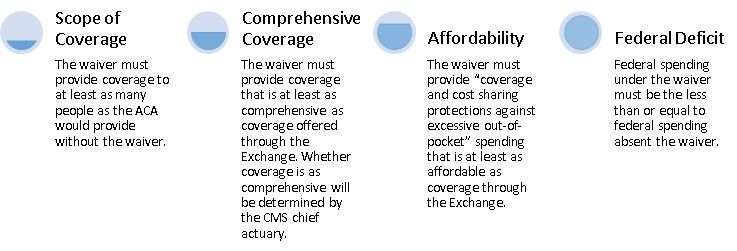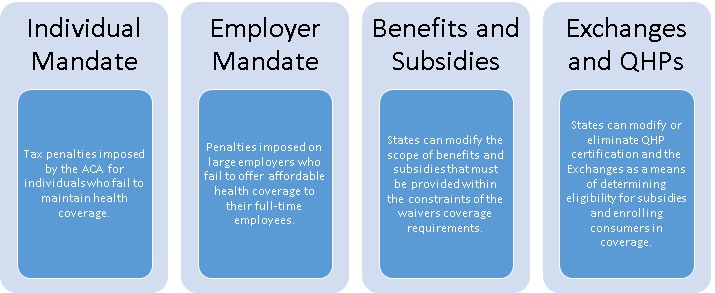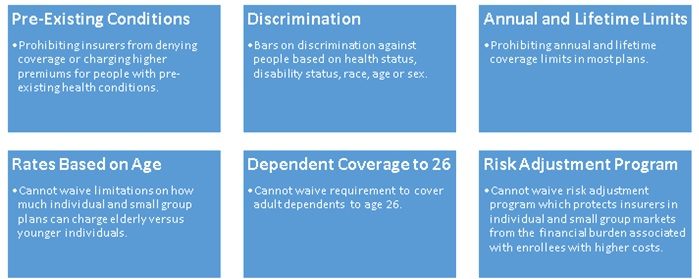 Overview
Overview
Beginning January 1, 2017, states can become a laboratory for new ideas by seeking to waive or alter certain provisions of the Affordable Care Act (ACA). Section 1332 outlining State Innovation Waivers under the ACA allows states to request alternative provisions to enhance state health markets if coverage and cost would remain the same absent the waiver. Planning for the waiver requests may begin at any time and applications can be submitted before 2017.
While the waiver will not exempt states from fulfilling the objective of the ACA – to make available high-quality, affordable health care to millions of adults who previously did not have access – it will allow states to accomplish these goals in an alternative manner to best address the perceived unique health care market in each state. That is, Section 1332 Waivers must not serve as means of undermining the ACA, but a way for states to strengthen and tailor the law to meet their unique needs.
Approval of a five-year waiver is at the discretion of the Secretaries of Health and Human Services (HHS) and the Treasury. Such approval is conditioned on meeting the same quality, volume and affordability of health insurance coverage as there would be without the waiver, all while maintaining budget neutrality.
Unlike Section 1115 Waivers, Section 1332 Waivers will not have the ability to change the way Medicaid or Children’s Health Insurance Program (CHIP) are delivered; however, there is an option to combine Section 1332 and Section 1115 Waiver proposals into a single application should the state choose to coordinate the two. This would allow states to fully coordinate health coverage programs and maximize the scope of innovation.
Additional guidance released by CMS on December 11, 2015 delineates the criteria required for approval of State Innovation Waivers.
Guardrails: A state waiver must satisfy the following four requirements in order receive approval.
What can be waived:
States can propose alternatives to the four pillars of the ACA.

What cannot be waived:
Although Section 1332 Waivers are broad in scope, there are clear limitations concerning ACA provisions that cannot be waived.

Translating the Waiver Changes into Strategies for Providers
While no provider lowers their standard of quality care based on shifts in coverage programs, providers will need to understand how a state’s potential Section 1332 Waiver may impact eligibility and program requirements. It is hoped that states will strive for simplification of coverage and program eligibility rules to achieve greater access to health care services that are properly reimbursed.
COPE Health Solutions has deep expertise in clinical redesign and business requirements development for population health and integrated delivery systems. We understand the complex waiver implications for health system lead agencies and partners. Our team has unparalleled experience and a proven track record of success from planning to implementation to measurement with 1115 Medicaid Waivers in New York, Texas and California. For more information on our experience, please refer to our services here.
